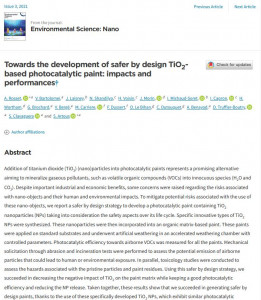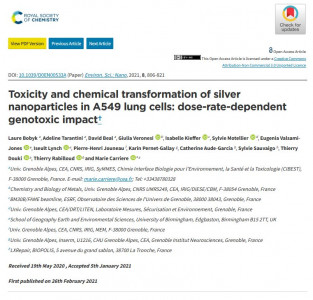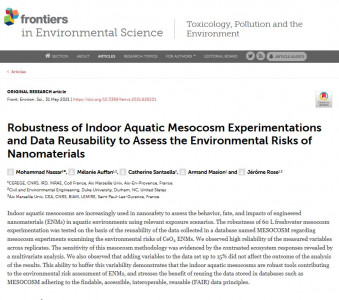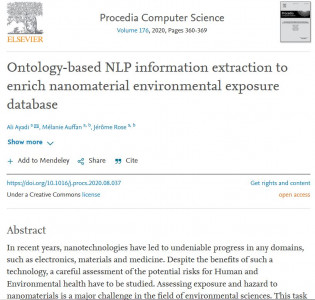GEOSCIENCES ENVIRONNEMENT TOULOUSE
UMR 5563 CNRS / UR 234 IRD / UPS / CNES
PhD position in Geochemistry
Starting date: 1 October 2018 Duration: 36 months
Net salary: 18 k€/year
General context:
We are seeking a candidate for a PhD thesis project entitled “Impact of sulfur on the fate of critical metals in geological fluids” starting October 2018. The project aims at quantifying the role of hydrothermal fluids in the transport of selected critical metals such as Mo, Re and Platinoids (PGE) and the formation of their economic deposits. The metal crisis has generated a rapidly growing demand for certain metals whose actually known resources are quite limited. This demand motivated an increasing interest of scientists and industrials for identifying new sources of these metals termed “critical” and for their more efficient and cheaper extraction from ore. Most of the critical metals are ultimately associated with sulfur in magmatic and hydrothermal ore, but the role of sulfur in the transport of these metals by the fluids that formed the deposits remains poorly known owing to a lack of experimental and analytical data on the fluid phase itself. In particular, the impact of new sulfur forms, the radical trisulfur (S3-) and disulfur (S2-) ions, recently discovered at hydrothermal fluid conditions, on the transport and fractionation of chalcophile metals (Re, Mo, PGE, i.e., those having an elevated affinity for reduced sulfur) is virtually unknown.
Since the last 5 years, our team has been conducting concerted studies in the aim to understand the effect of the different sulfur forms on metal transfers and ore deposits formation. The present PhD project as part of these studies will be carried out within the framework of the ANR program RadicaS (http://www.get.obs- mip.fr/recherche/projet/radicalS). The potential applications of this interdisciplinary research program span from the formation and exploration of metal resources to the evolution of magmas and isotope geochemistry of sulfur and metals.
Project description:
The thesis work aims at exploring the interactions of sulfur with metals such as Mo, Re and PGE in the hydrothermal fluid phase using a combined experimental, analytical and modeling approach. In particular, we will attempt to quantify the effect of radical sulfur ions on the transport, fractionation and precipitation of these metals. As essential part of the PhD work will be devoted to measurements of metal solubility and speciation in aqueous S-rich fluids at conditions typical of hydrothermal ore deposit formation (300-500°C, 100-1500 bar), as a function of S concentration, redox and pH. These experiments will use the park of hydrothermal reactors available at GET. Metals and sulfur in solution and solids will be analyzed by different cutting-edge techniques at GET (AAS, ICP-MS, ICP-AES, EMP, XRD, SEM). Another important complementary approach will be in-situ X-ray absorption, X-ray fluorescence and Raman spectroscopy at synchrotron both on laboratory and natural samples, and the student will specially be trained in these and other synchrotron methods. Based on the data obtained, thermodynamic modeling of fluid-rock interactions will be
performed to evaluate the transport and precipitation phenomena in natural hot and deep fluids inaccessible to direct observation. The results will be used to interpret natural data on fluid inclusions and representative porphyry Cu-Au (Mo, Re) and magmatic-hydrothermal Ni-Cu (PGE) deposits, to develop new ore formation models and more rigorously interpret the cases of critical metal concentration in different geological settings.
The obtained results will allow, for the first time, elucidation of the nature and stability of aqueous forms of the critical metals and quantification of the impact of sulfur on metal transfers across the lithosphere. Potential impacts of this broad research range from the formation and distribution of mineral resources and their optimized processing to the interpretation of isotope ratios (e.g., 194Pt/195Pt, 98Mo/95Mo, Re/Os systematics), which receive rapidly growing applications for dating and tracing various natural processes and to the growing use of critical metals in autocatalysis and nanotechnology.
The work will be carried out in an interdisciplinary environment, in collaboration with CEMES and IRAP (Toulouse), INEEL (Grenoble), ENS/IMPMC (Paris) in France and several European (GFZ Potsdam; University of Iceland) and Canadian (University of Toronto) laboratories, offering complementary expertise and facilities. The PhD student will receive a high-quality education and training in the field of experimental and analytical geochemistry, in situ spectroscopic techniques, physical-chemical modeling and economic geology.
Prerequisites:
The applicants should hold a Master degree in Geology, Chemistry or Physics by July 2018. We seek for a highly motivated person, particularly interested in ore deposit geochemistry, hydrothermal processes and physical-chemistry in general, and enjoying laboratory experimental, analytical and modeling work. The candidate should, in addition, have a sufficient background in aqueous/inorganic chemistry and thermodynamics. The candidate should be comfortable in English. Knowledge of French is not mandatory at start, but the candidate will be expected to learn spoken and written French during the thesis work.
Application:
The candidates should submit, in a single pdf file by email, a statement of research experience and interests, a detailed CV including the complete list of education records and classifications, and the names and contact information of two potential referees to: Dr. Gleb Pokrovski, gleb.pokrovski@get.omp.eu, phone: (+33)561332618.
Please contact Dr. Pokrovski for additional information concerning the project. General information about the GET laboratory is available at: www.get.obs-mip.fr/
The selected candidates will be evaluated and interviewed in June 2018 by the Doctoral School committee SDU2E of the University of Toulouse. The obtaining of this PhD fellowship is primarily conditioned by the student’s education records and grades and performance during the interview.









